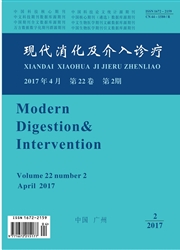

 中文摘要:
中文摘要:
目的探讨Fas通路的非凋亡信号在胃癌细胞株AGS中促进增殖转移的作用。方法流式细胞仪检测AGS细胞表面Fas及FasL表达情况;根据FasL不同作用浓度梯度,绘制细胞生长曲线;shRNA沉默AGS的Fas表达后,或NOK-1拮抗FasL后,利用transwell实验检测AGS的侵袭能力;免疫组化检测FasL表达与E-cadherin关系。结果低浓度的FasL(12.5ng/ml)刺激对细胞增殖无明显抑制作用,反而能提高肿瘤细胞的侵袭能力。在沉默Fas受体或经NOK-1拮抗FasL后,该效应减弱。FasL和E-cadherin在胃癌组织中的表达呈负性相关。结论低剂量的FasL不能诱导AGS产生凋亡效应,反而通过Fas信号通路促进其侵袭转移能力。
 英文摘要:
英文摘要:
Objective To explore the non-apoptotic ability of Fas signaling pathway to promote the proliferation and the metastasis in gastric cancer cell line AGS. Methods Flow cytometry was used to detect AGS cell surface expression of Fas and FasL expression. According to the different role of FasL concentration gradient, we draw the cell growth curve. Transwell experiments were used to test the AGS invasion ability after silencing AGS Fas expression, or antagonsting the ability with NOK-1. Immunohistochemical assay was used to detcet FasL expression of E-cadherin. Results No significant inhibition and tumor cell invasion was found after low concentration of FasL (12.5 ng/ml) stimulation. In silenced Fas receptor or FasL antagonized by NOK-1 , the effect was weakend. The expression of FasL and E-cadherin in gastric cancer tissues showed a negative correlation. Conclusion Low doses of FasL failed to induce AGS produce apoptotic effects, but through Fas signaling pathway can promote its invasion and metastasis.
 同期刊论文项目
同期刊论文项目
 同项目期刊论文
同项目期刊论文
 期刊信息
期刊信息
